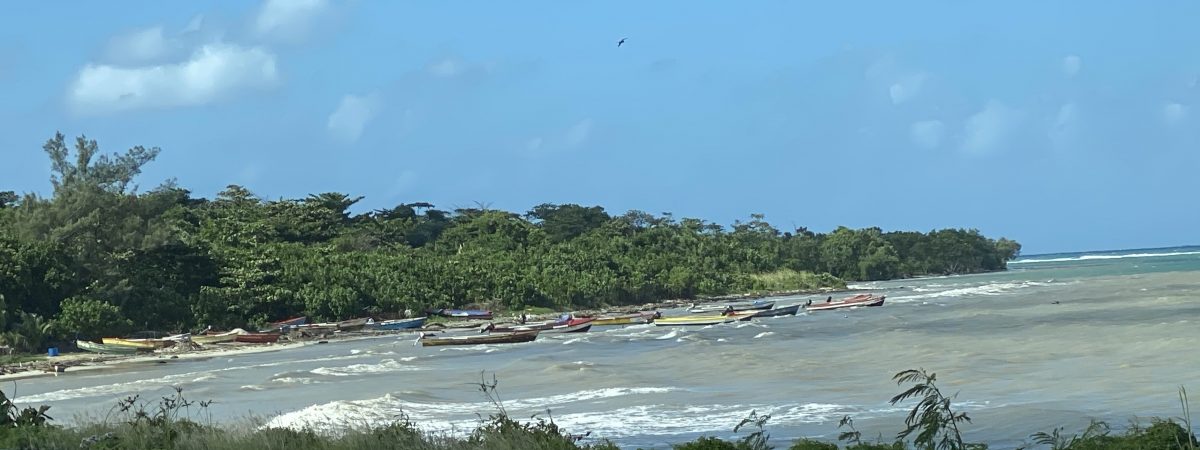My heart grieves when I see what some parents are allowing their children to do, and often with adult consent, encouragement and funding, in public. This week, I saw children enjoying the last days of summer holidays, doing something that made my blood boil. A boy and girl were seated on a shady bench. The boy reached out to the girl and offered her a bite of his lunch. She smiled shyly then opened her mouth and closed her eyes. He pushed the sandwich towards her lips. Her mouth opened slowly and in one savage bite, she took half of it. As her mouth worked I could hear her moaning in delight. Could a hamburger be so good?
Modern Jamaican children have been led down a devilish path of foreign influences, which threaten to stifle our little island’s great culinary culture. When I drove a family friend around Kingston early this afternoon, she told me a story about how her mother had worked as a cook at King’s House. She recalled how she’d been sent to Constant Spring Market to buy cow skin so that it could be boiled to make gelatin and then have colouring added to it to make home-made jelly. I laughed. My grandmother had also worked as a cook and I had never come across this gem.
But, have we been swept up by the waves of industrial progress and forgotten what we owe to the next generation? I loved it when two third grader children with Jamaican-Bahamian parents, born and raised in the USA, said boldly to their class mates in the US that they loved turkey neck most in Thanksgiving dinner, NOT mashed potatoes and gravy. Hail, parents and grandparents!
This morning, I met a class mate of my daughter’s here in Jamaica and asked what she’d had for breakfast. “Breadfruit and bacon,” she told me, proudly. So, it should be. This week, I’ve fed my daughter a steady diet of porridge before going to school–not oats, but hominy and cornmeal. I can embrace progress with this seeming backward gesture, because Jamaican food manufacturers now produce good versions of these staples that take less time to boil at home. It’s no big deal for me to make separate servings of different porridges. I’ve a cupboard loaded now with peanut, plantain, hominy and cornmeal porridges. Come, Mister Hurricane, if you bad!
My wife’s also gone a bit retro and bought an ice cream churn so that we can spend weekend afternoons making homemade ice cream. So far, mango and soursop have been dished up and were hoping that the guests who enjoyed it with us will soon pack up and leave. Two weeks’ stay over from a Sunday lunch is a little, forward, no?
I’m not someone filled with crazy nationalistic notions. I don’t think that all children need to spend 6 weeks in the country areas each year with grandparents or family members who farm or fish. But, talking about nights spent walking through the bush with a fire-stick or no light, feeling your way to your destination, makes me think that the modern generation is in danger of turning into a bunch of soft people. A friend just told me a story of two men walking through the bushes one night and they came to a river. One man, who knew the area, said to his visitor friend “Just jump!” He leapt and waited for his friend to follow. His friend summoned up courage and jumped. He landed on a slippery rock but kept his balance and stood on dry land. His friend then pulled out a lighter and set fire to some twigs, and they both looked down to see a raging torrent of water that was about 8 feet wide and about 30 feet below them. “Just jump? You mad!” said the visitor.
You don’t need zip lines for adventures. Go to the river and catch crayfish. Try taking a herd of cattle to the pasture. Milk cows. Fetch water. Collect logwood. I’m sure I can sign my child up for some ‘adventure’ activities at a camp, but I like simple.
This week, I decided to be firmer in my efforts to stop this slide down a slippery slope to ‘I’m a getting’ lost. I introduced my daughter to some essentials of life. Others may not agree on their relative importance but I’m not going to stay friends with anyone who thinks these things are not essential. Here’s a list of things I made sure she experienced this week:
*How to eat piping hot cornmeal or hominy porridge with chunks of hardo bread dropped in (I concede that Excelsior crackers work great, too). [As a friend reminded me, whole wheat bread has no place being near porridge.]
*Drinking a water coconut from the shell, without a straw.
*Eating soft coconut jelly with a sprinkling of brown sugar. (She’s even made her own variations, leaving some water in the coconut so that the sugar starts to dissolve a little into syrup. Children are inventive.)
*Ackee and salt fish on water crackers. (Water crackers make many a snack excellent.)
*Eating a slice of hardo bread with condensed milk. (She’s young, so I did not introduce her to the full sandwich.)
Her life changed forever when she tasted the bread and sweetened milk. Blame me!
Some of these things are part of the ‘inside secrets’ of Jamaican life. We eat patty and coco bread. Don’t listen to foolish talk about “too much starch”! We eat corn soup. All hot drinks are ‘tea’. Ah so we dweet!
Driving through Faith Pen last week, it was a given in my daughter’s mind, newbie though she is–to stop for roast yam and salt fish–and the fish was SALTY.
Though some of these tasty treats may owe their origins to poverty and hard times that some may want to forget, they’re very much a part of who we are. Bulla and pear, anyone?





















